The 14th Amendment is a big deal in American law. It established citizenship for everyone born in the U.S., and yes, that includes former slaves. It knocked down state laws that tried to pull the whole "no rights for you" stunt. With its Equal Protection and Due Process Clauses, it became a hero for civil rights advancements. It's the foundation for fighting discrimination and securing rights like marriage equality. Want to know how it all unfolded?
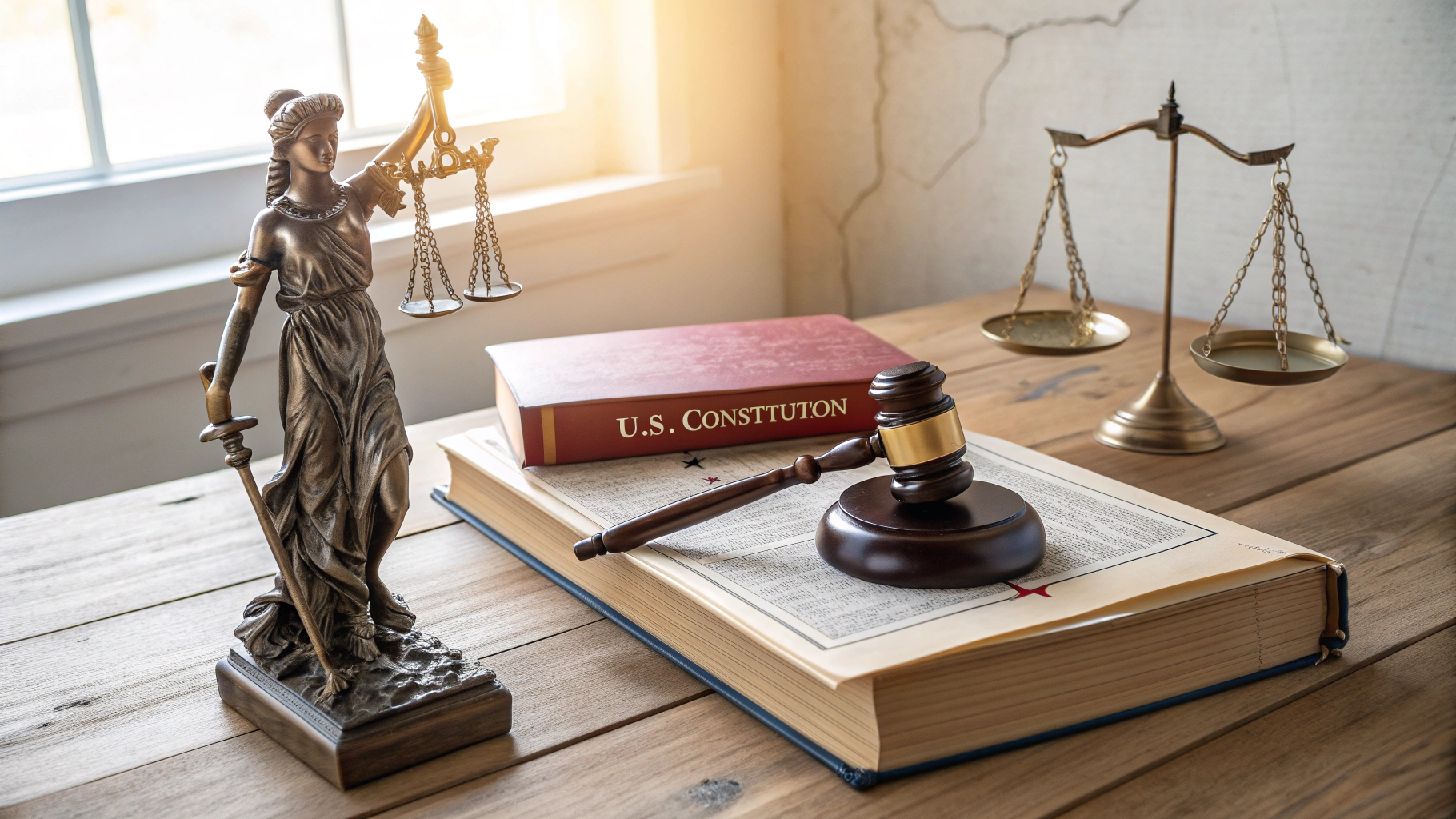
The 14th Amendment: a game changer. Ratified on July 9, 1868, this amendment came sprinting out of the ashes of the Civil War, ready to redefine who gets to call themselves an American. The Impact of Key U.S. Constitutional Amendments highlights how each amendment has profoundly shaped American society, much like the 14th Amendment did in ensuring citizenship rights.
Let's face it—before this, citizenship was a messy business, especially for Black people, thanks to the infamous Dred Scott decision. The 14th Amendment was the federal government's way of saying, "Hey, you can't just ignore people's rights!" It laid down the law: if you're born or naturalized in the U.S., you're a citizen. Simple, right? Not quite.
Citizenship used to be a mess, especially for Black people, but the 14th Amendment declared, "Everyone's rights matter!"
This amendment didn't just hand out citizenship like candy. It demanded something big: equal protection under the law. States had to treat everyone equally, regardless of background. No more Black Codes denying basic rights. The Equal Protection Clause was a response to blatant discrimination. It's like the ultimate "you can't be serious" moment for states that thought they could get away with inequality. Just ask the Supreme Court, which has dropped some serious rulings based on this clause. The 14th Amendment's Equal Protection Clause has been instrumental in advancing civil rights, paving the way for landmark decisions like Brown v. Board of Education.
And then there's the Due Process Clause. It's a lifesaver. No one can be deprived of life, liberty, or property without due process. Period. Whether it's about your right to marry or even your right to an abortion, this clause has been at the forefront. It's been invoked in cases that have changed the landscape of American rights, like Roe v. Wade. Talk about a heavyweight. The Due Process Clause has been crucial in applying most of the Bill of Rights to states, ensuring protection against arbitrary denial of rights.
The 14th Amendment has been the backbone for civil rights. Racial desegregation? Check. Marriage equality? Double check. It's been a powerful tool against discrimination, pushing back against laws that just don't make sense.
It's like a legal superhero, swooping in to protect the rights of women, immigrants, and LGBTQ+ folks. So, here's the bottom line: the 14th Amendment didn't just change the game; it rewrote the rules.
Frequently Asked Questions
How Did the 14TH Amendment Impact Civil Rights Movements?
The 14th Amendment? A game changer for civil rights.
It laid the groundwork for equality and justice. Just think: without it, no Brown v. Board of Education or Loving v. Virginia.
It tackled segregation and marriage bans like a boss. Sure, it's still debated today, but it's the backbone for fighting discrimination.
It's not just about former slaves anymore; it's about everyone. Equality's a party, and the 14th Amendment sent out the invites.
What Are the Key Clauses in the 14TH Amendment?
The 14th Amendment packs a punch with its key clauses.
First up, the Citizenship Clause says, "You're a citizen if you're born here. Deal with it."
Then there's the Privileges or Immunities Clause, which is like that friend who promises equal rights but rarely delivers.
The Due Process Clause? It's the "no unfair treatment" rule.
Finally, the Equal Protection Clause guarantees everyone gets a fair shot—at least on paper.
Quite the lineup, right?
How Has the Supreme Court Interpreted the 14TH Amendment?
The Supreme Court's interpretation of the 14th Amendment has been a wild ride. Initially, they basically shrugged it off, limiting its power.
But then came the incorporation of the Bill of Rights, making states play nice with federal laws, finally!
They tackled race, gender, and even student rights along the way. It's like a legal rollercoaster—some highs, some lows, and plenty of controversial twists.
The journey continues, folks. Buckle up!
What Role Did the 14TH Amendment Play in Immigration Law?
The 14th Amendment? It's a game-changer in immigration law. It says, "Hey, if you're born here, you're a citizen." Simple, right? Well, not quite.
Some politicians want to mess with that. They think limiting birthright citizenship will solve the immigration crisis. Spoiler alert: it probably won't.
Courts have backed the amendment, making it tough for any executive to just waltz in and change the rules. So, good luck with that!
How Does the 14TH Amendment Affect State Laws Today?
The 14th Amendment still packs a punch in today's legal arena.
It keeps state laws in check, ensuring no one gets unfairly kicked while they're down. Discrimination? Nope, not on its watch. States can't just make arbitrary rules that mess with people's lives, liberty, or property.
And if they try? Well, that's a lawsuit waiting to happen. So, yeah, the 14th Amendment is kind of a big deal for keeping things fair.
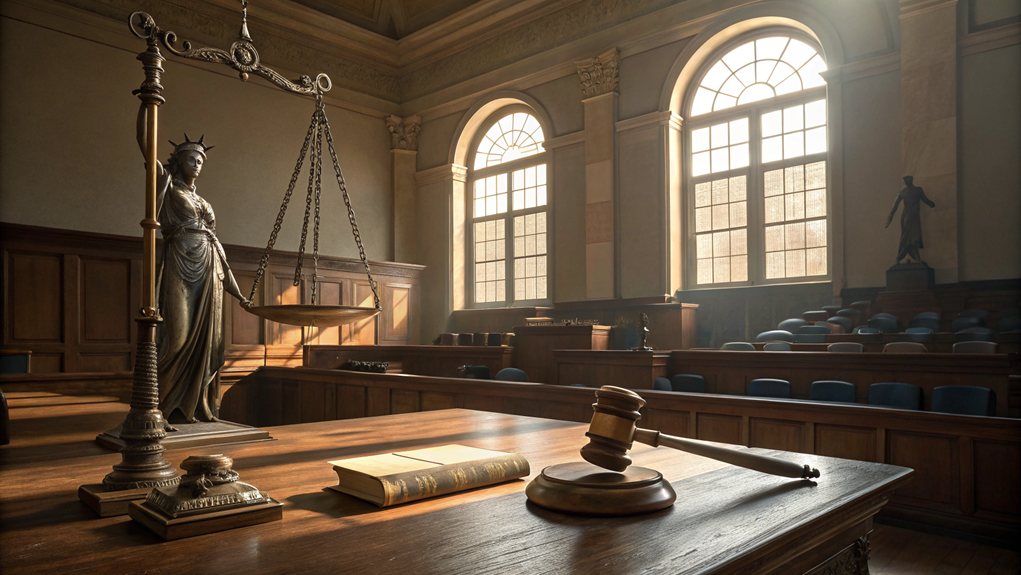
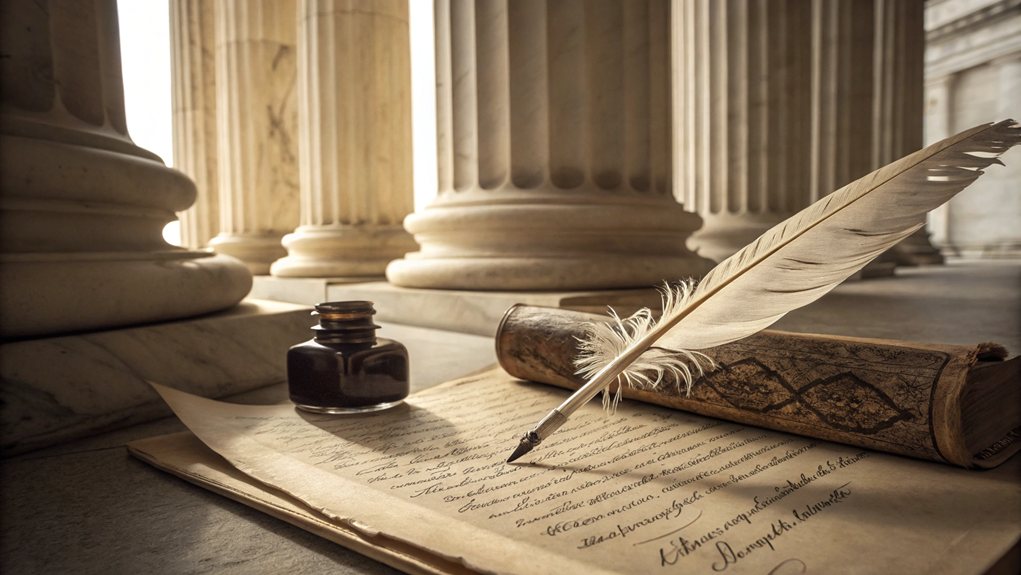
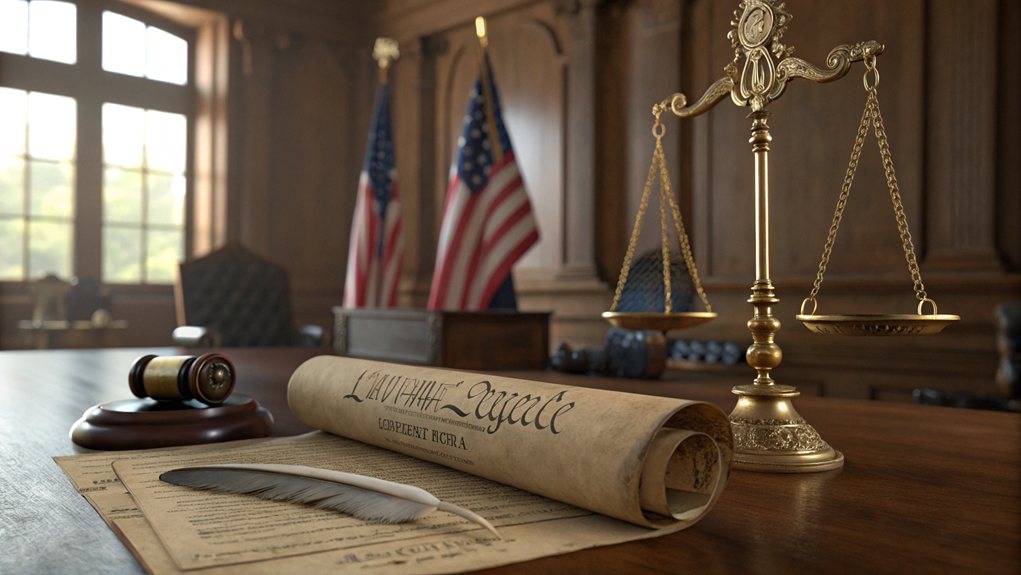

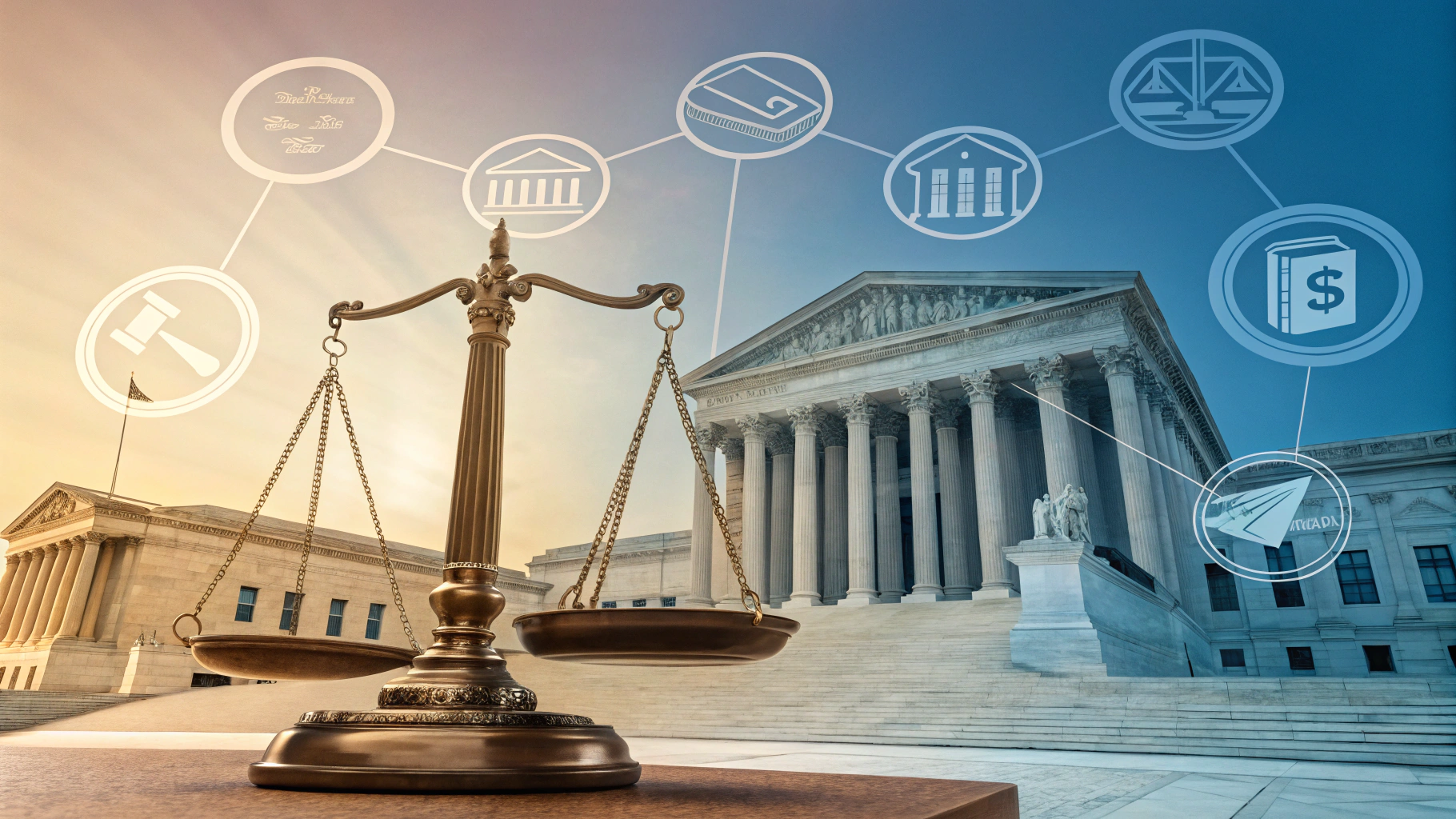
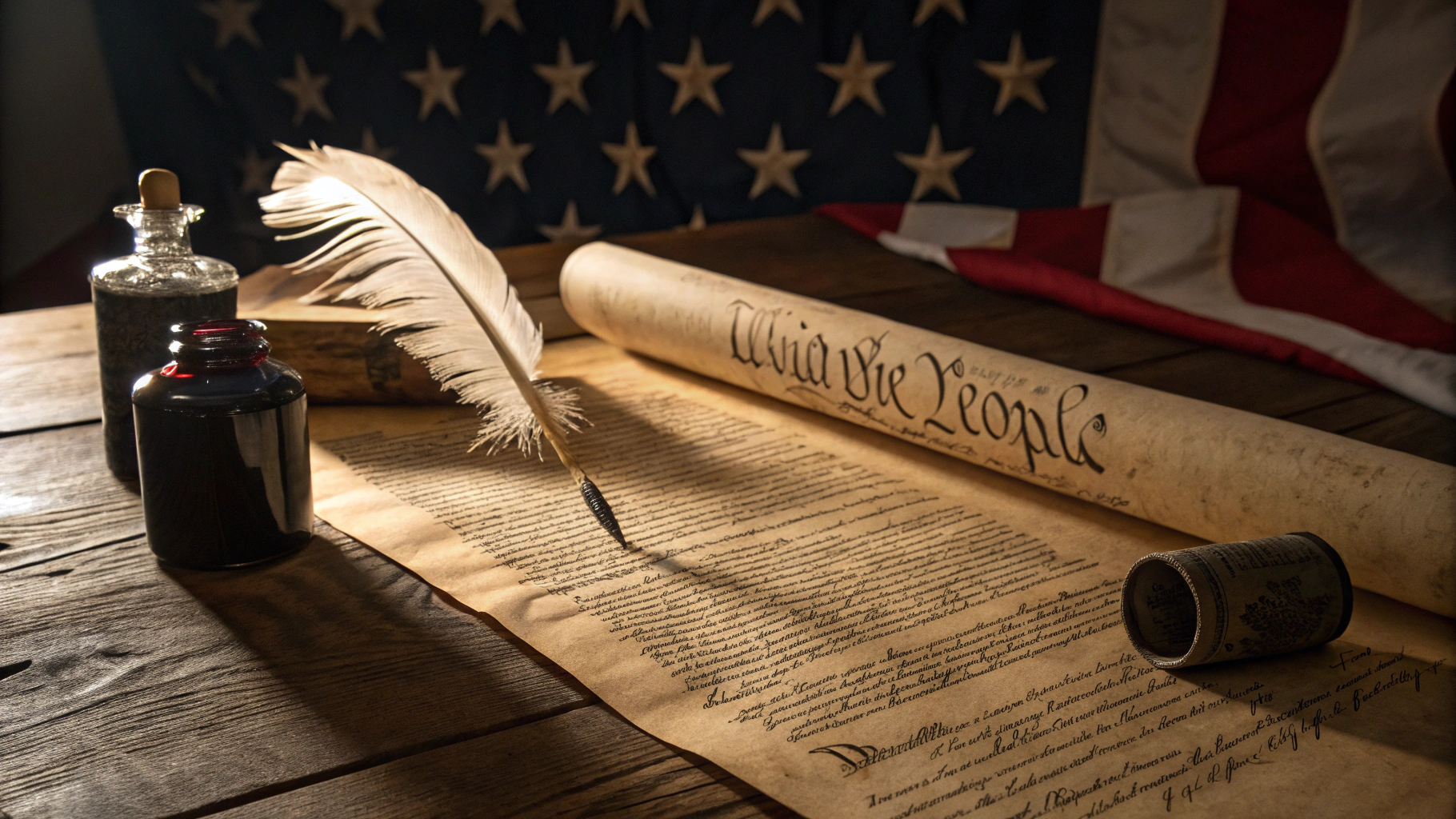




3 comments
Comments are closed.